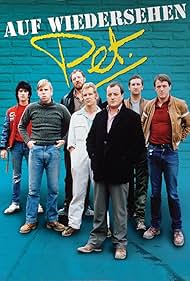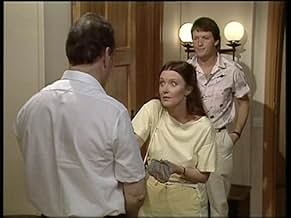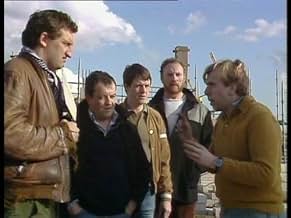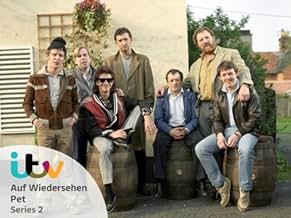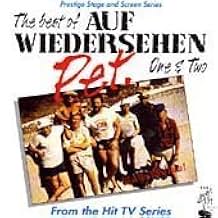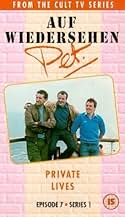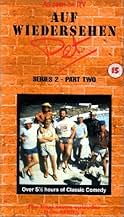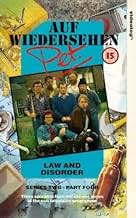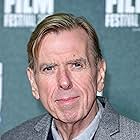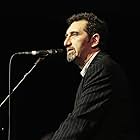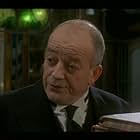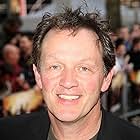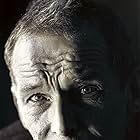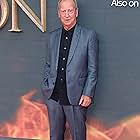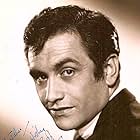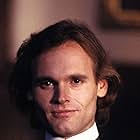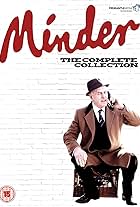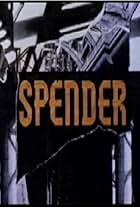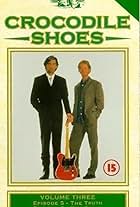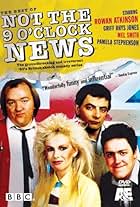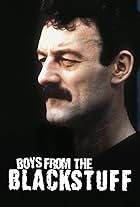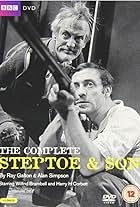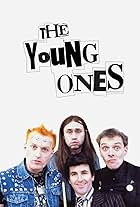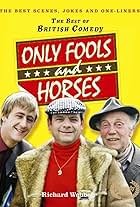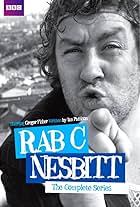Auf Wiedersehen, Pet
- TV Series
- 1983–2004
- 1h
Seven British construction workers escape Britain's ever-growing dole queues and travel to Germany to work on a site in Düsseldorf. Follow their trials and tribulations of working away from ... Read allSeven British construction workers escape Britain's ever-growing dole queues and travel to Germany to work on a site in Düsseldorf. Follow their trials and tribulations of working away from home and away from the women they left behind.Seven British construction workers escape Britain's ever-growing dole queues and travel to Germany to work on a site in Düsseldorf. Follow their trials and tribulations of working away from home and away from the women they left behind.
- Nominated for 7 BAFTA Awards
- 4 wins & 8 nominations total
Browse episodes
Storyline
Did you know
- TriviaWhen the Berlin wall was pulled down by German citizens, a British journalist found some interesting graffiti. It read "Built by Germans, demolished by Oz".
- GoofsMost of the German location shots in Series 1 were filmed in Hamburg, not Dusseldorf. One of the giveaways is that many of the cars have HH (Hamburg) number plates.
- Crazy creditsFinal Episode of Series 3: "The Transporter Bridge Is Still In Middlesborough" - so convincing were the digital effects of the dismantling and reassembling of the bridge, many people in the UK were reported to have visited Middlesborough to check the bridge was still in place.
- Alternate versionsDue to copyright complications there are cuts in the series 2 video releases. However, these cut scenes are still broadcast in the TV & satellite repeats. Also, due to the editing out of the commercial breaks for the video release of both series, scenes either side of these breaks have been shortened and/or cut completely. It is hoped that all these cuts/edits can be fully restored for the DVD release, tentatively scheduled for 2002.
- ConnectionsFeatured in 10 Years of Alright on the Night (1988)
Featured review
It had been about time that I watched this series, when I began last summer; this April the viewing was concluded, as I reached the sixth and last episode of the recent third series.
To start at the beginning, I loved the first series; it is usually this one that gets the acclaim and from which most popular memories of the series are drawn. The escapades - grounded in some sort of realism, but larger than life - of the seven jobbing bricklayers, on a building site in Dusseldorf, living in a cramped 'hut', have entered the parlance of modern day folk legend. The brilliance of the series is in portraying working-class life in all its complexity; there is an innate sympathy for the characters, whatever their foibles. While Oz is an ignorant loudmouth for a lot of the first series, this is played for winning comedy and it really seems to work when he is softened and something of a reformed character - at heart he is good. There is always comedy, and indeed some quite heartfelt drama, in the relations between these geographically and temperamentally disparate seven characters. Though the basis is firmly in the north east, with Dennis taking on the mantle of leader, Jimmy Nail's immortal Oz being the most well-known character, and indeed three of the seven being from north-east England, the other four play a crucial role in broadening the group. Gary Holton's Wayne is a brash cockney, very much the 'laddish' sort in its original and most justifiable, loveable rogue form. Pat Roach's Bomber is a genial, well-spoken West Country man, older than the others and physically imposing - indeed having behind him some experience of wrestling! Christopher Fairbank's 'Moxey' is perhaps the least prominent of the seven in many ways; as he joins the group slightly later; a weaselly little Liverpudlian who means well but always gets into scrapes, such as serial arson! And, probably the other main comedic focus from Oz, is Timothy Spall's wonderful portrayal of Barry Taylor, a 'radish' from Wolverhampton, with the most amusing west midlands accent. His absurd pedantry and straight-laced nature, along with his pretensions at being more 'cultured' and intellectual than the rest of them are a great source of comedy. He is always the coward, and the source of much jovial ridicule; a crucial epicenter of the group, who really seems to relish their adventures - at least when looking back on them, as in the opening to Series 2.
Kevin Whately is excellent as Neville Hope, the member of the group less bothered about the camaraderie and drinking, as he misses his beloved wife, Brenda. Tim Healy rounds off the group as Dennis Patterson, perhaps the most grounded of the group, who reluctantly assumes the mantle of "gaffer". I really like how the first series combines elements of verbal and physical humour - such as when Michael Elphick's absurdly villainous MacGowan appears - with deeper themes. Thatcher's Britain is of course rightfully exposed, by the very nature of these people having to go overseas for work. Their forging of a team spirit is a counter to the rampant individualism and greed of the 1980s. Also, the low-rent nature of the England that is occasionally shown really strikes you - even more so than today, the north east of England is a very deprived area. You have some brilliant dramatic and comic focus on relationships - Dagmar and Dennis is just the sweetest romance - and friendship. Also, you have the 'Englishman abroad' comedic potential exploited and subverted; this is a maturely written series that treats the Germans with respect and proves Oz wrong. The episode where Neville proves the hero by finding the unexploded bomb is wonderful, where he has tea with a German family. More overtly comical, and possibly the flat-out funniest episode of the first series is where Barry and Wayne are at the hotel, in a misadventure pursuing some Swedish women.
Many have said that the first series marked the show's peak, and it was downhill from there on. I would refute this. Series 2 in my opinion is close to as good, and in many ways even better; it is only perhaps spoiled by a weak, if not bad, final episode. There is a far stronger, serial-narrative thrust to Series 2, with the ongoing plot a real boon. This is made so by the wonderful acting of Bill Paterson as the charmingly witty and despicable Ally Fraser, a gangland boss. Generally, you have the sense of a grand scheme in operation and various adventures and settings. The diversity is a good thing; we take in Wolverhampton in the first episode or two - with Barry a deceptively upwardly mobile figure! And Newcastle, Derbyshire and Spain at various points. The Newcastle episodes, towards the middle, bridge the gap between Derbyshire and Spain beautifully; Oz's character is again deepened, Dennis has some compelling problems and there is wonderful amusement as a petrified Barry experiences Gateshead. "Muggers! Rapists!"
The Derbyshire sequence of episodes is possibly amongst the whole series' most winning; a real autumnal feel is evoked, with much location work and a new setting for the group: the adversity of a cold, empty country house. The disputes with the local pub's landlord, a sour military type brilliantly played by Bryan Pringle, make for superb culture-clash comedy, as do others where the boys are at large in this more genteel area of the country. The escapades such as Oz and Barry's fishing, Barry's hilariously absurd desire to go for "an evening brass rubbing!" in the local church rather than to the pub, are marvelous indeed. Particularly sublime is the episode where the group have to fight off (in a comical exchange) Fraser's bully-boy tactics. Barry's inept kick at one of the hapless, defeated cohorts of Fraser, is absurd and so Barry! All of these episodes are wonderful really, and this is effectively carried through the Newcastle ones and then to Spain.
Unlike many people, I didn't feel the absence of Gary Holton really affected things that much; it was reasonably effectually explained. Much of the Spain stuff is vintage AWP; Fraser comes increasingly to the fore as a genuinely great comic character, Timothy Spall is at his very best, and there's a very nice, languid mood about the whole visit. As I say, only the last episode disappoints a bit; with the conclusion seeming a bit like short change after the preceding 12 episodes or so and their excellent build up. The second series develops all of the characters really well (including Wayne, though of course sadly Holton died during production and is a lesser presence in later episodes), and you feel like you know them as friends almost. The first two series are brilliant television; culturally insightful, with better drama than many dramas and so much richly humorous entertainment.
Now, series 3 came along as many as sixteen years later, and had a very difficult task to in any way measure up to the originals. I was delighted to find that as a series it was frankly as good as could have been expected. Of course, it's not really quite as good as the 1980s series', for a few reasons, but it gives it a very good shot, all told. You occasionally feel things are too different in tone and presentation, but surprisingly seldom really; it is a near miracle that it managed to be as true to the spirit of the original as possible. A few obvious 'differences' are the change of title music - a bland Mark Knopfler song, that grows on one a bit, but is nowhere near the memorable 'rightness' of series 1 and 2's fine opening and closing tunes - such as "Back with the Boys Again" and Series 1's poignant opening titles number. Perhaps more importantly, it is shot on film and appears far more lavish visually, in general; this reflects the changes in British television drama in general since 1986. I don't personally feel this suits the particular feel of the programme, though it's passable when all is said and done; indeed, I recall that Series 2 was that bit more upmarket in the way it was filmed than the first series. In terms of plot, a few things seem very contrived, but generally it is all good enough on that front. The whole Native American plot strand works reasonably well, though it's not quite the set-up of Derbyshire or Dusseldorf. Throughout the series, the lead actors give exemplary performances; which largely makes it all work, along with solid, if possibly less exceptional scripts than earlier series', from La Frenais and Clement. Spall - by now a much more experienced actor - slots right back into the great role of Barry, and it's really quite moving how he develops from out of his initial smug complacency, rich and married to a beautiful Russian dame. Of course, the delectable Tatyana proves to be on the make, and cheating Barry, so he becomes more of a vulnerable character again; when in America, that is all very well dealt with. There's possibly less emphasis on Dennis in this series, and certainly less on Bomber, who nevertheless gets a few good scenes and is quite moving in how he's aged, yet appears to be back to fitness at the end. A slightly different side to Neville - hinted at in the second series - is shown, with his marriage faltering a little; this strand is very satisfactorily concluded. Moxey strangely has lost his stutter, but is as ever an amusing, if minor player. Jimmy Nail is largely very good as Oz, though at times I feel the character is too overly central in proceedings compared to the others. Wyman, the son of Wayne, proves a little unnecessary, just there really to make up the seven; although he's likeable enough, he doesn't really have all that much to do.
The major plus of Series 3 turns out to be the absolutely brilliant comic turn that is Bill Nighy's Geoffrey Grainger; a 'reformed' Jonathan Aitken-type Tory politician, who has been in jail, where Oz helped him out. Nighy is wonderfully astute and precise in his facial and verbal expressions; it really is a sparkling turn that really grows on you; by the latter episodes, he's almost the star of the show. When he comes out to Arizona, it's a sublime sequence of comedy, as this political trickster is finally out-manoeuvred by the boys. Generally, I felt the last three or so episodes saw this new BBC series really hitting its stride; once again, a foreign setting paid off and was interestingly explored. The camaraderie almost fully returned. I was enjoying it increasingly as it went along; bluntly put, what a shame that it could only be a 6 episode series! It seemed as if it was slipping back into the epic gear; and 13 episodes or so always seems the right length for these wonderful characters... so, overall, Series 3 was a success.
I hope I have to some extent encapsulated the appeal of this excellent comedy-drama. "Auf Wiedersehen Pet" is one of television's finest ongoing epic narratives, and one of comparatively few programmes to truly deserve to be billed as equally comedic and dramatic: each of these work beautifully in tandem. It is a genial programme with real depth and grounding in vivid, naturalistic settings, contains detailed, likeable central characters and amusing, always well-judged plots and themes. It is rare in that it seldom takes the easy route, and is yet very popular with a wide audience.
Rating:- *****/*****
To start at the beginning, I loved the first series; it is usually this one that gets the acclaim and from which most popular memories of the series are drawn. The escapades - grounded in some sort of realism, but larger than life - of the seven jobbing bricklayers, on a building site in Dusseldorf, living in a cramped 'hut', have entered the parlance of modern day folk legend. The brilliance of the series is in portraying working-class life in all its complexity; there is an innate sympathy for the characters, whatever their foibles. While Oz is an ignorant loudmouth for a lot of the first series, this is played for winning comedy and it really seems to work when he is softened and something of a reformed character - at heart he is good. There is always comedy, and indeed some quite heartfelt drama, in the relations between these geographically and temperamentally disparate seven characters. Though the basis is firmly in the north east, with Dennis taking on the mantle of leader, Jimmy Nail's immortal Oz being the most well-known character, and indeed three of the seven being from north-east England, the other four play a crucial role in broadening the group. Gary Holton's Wayne is a brash cockney, very much the 'laddish' sort in its original and most justifiable, loveable rogue form. Pat Roach's Bomber is a genial, well-spoken West Country man, older than the others and physically imposing - indeed having behind him some experience of wrestling! Christopher Fairbank's 'Moxey' is perhaps the least prominent of the seven in many ways; as he joins the group slightly later; a weaselly little Liverpudlian who means well but always gets into scrapes, such as serial arson! And, probably the other main comedic focus from Oz, is Timothy Spall's wonderful portrayal of Barry Taylor, a 'radish' from Wolverhampton, with the most amusing west midlands accent. His absurd pedantry and straight-laced nature, along with his pretensions at being more 'cultured' and intellectual than the rest of them are a great source of comedy. He is always the coward, and the source of much jovial ridicule; a crucial epicenter of the group, who really seems to relish their adventures - at least when looking back on them, as in the opening to Series 2.
Kevin Whately is excellent as Neville Hope, the member of the group less bothered about the camaraderie and drinking, as he misses his beloved wife, Brenda. Tim Healy rounds off the group as Dennis Patterson, perhaps the most grounded of the group, who reluctantly assumes the mantle of "gaffer". I really like how the first series combines elements of verbal and physical humour - such as when Michael Elphick's absurdly villainous MacGowan appears - with deeper themes. Thatcher's Britain is of course rightfully exposed, by the very nature of these people having to go overseas for work. Their forging of a team spirit is a counter to the rampant individualism and greed of the 1980s. Also, the low-rent nature of the England that is occasionally shown really strikes you - even more so than today, the north east of England is a very deprived area. You have some brilliant dramatic and comic focus on relationships - Dagmar and Dennis is just the sweetest romance - and friendship. Also, you have the 'Englishman abroad' comedic potential exploited and subverted; this is a maturely written series that treats the Germans with respect and proves Oz wrong. The episode where Neville proves the hero by finding the unexploded bomb is wonderful, where he has tea with a German family. More overtly comical, and possibly the flat-out funniest episode of the first series is where Barry and Wayne are at the hotel, in a misadventure pursuing some Swedish women.
Many have said that the first series marked the show's peak, and it was downhill from there on. I would refute this. Series 2 in my opinion is close to as good, and in many ways even better; it is only perhaps spoiled by a weak, if not bad, final episode. There is a far stronger, serial-narrative thrust to Series 2, with the ongoing plot a real boon. This is made so by the wonderful acting of Bill Paterson as the charmingly witty and despicable Ally Fraser, a gangland boss. Generally, you have the sense of a grand scheme in operation and various adventures and settings. The diversity is a good thing; we take in Wolverhampton in the first episode or two - with Barry a deceptively upwardly mobile figure! And Newcastle, Derbyshire and Spain at various points. The Newcastle episodes, towards the middle, bridge the gap between Derbyshire and Spain beautifully; Oz's character is again deepened, Dennis has some compelling problems and there is wonderful amusement as a petrified Barry experiences Gateshead. "Muggers! Rapists!"
The Derbyshire sequence of episodes is possibly amongst the whole series' most winning; a real autumnal feel is evoked, with much location work and a new setting for the group: the adversity of a cold, empty country house. The disputes with the local pub's landlord, a sour military type brilliantly played by Bryan Pringle, make for superb culture-clash comedy, as do others where the boys are at large in this more genteel area of the country. The escapades such as Oz and Barry's fishing, Barry's hilariously absurd desire to go for "an evening brass rubbing!" in the local church rather than to the pub, are marvelous indeed. Particularly sublime is the episode where the group have to fight off (in a comical exchange) Fraser's bully-boy tactics. Barry's inept kick at one of the hapless, defeated cohorts of Fraser, is absurd and so Barry! All of these episodes are wonderful really, and this is effectively carried through the Newcastle ones and then to Spain.
Unlike many people, I didn't feel the absence of Gary Holton really affected things that much; it was reasonably effectually explained. Much of the Spain stuff is vintage AWP; Fraser comes increasingly to the fore as a genuinely great comic character, Timothy Spall is at his very best, and there's a very nice, languid mood about the whole visit. As I say, only the last episode disappoints a bit; with the conclusion seeming a bit like short change after the preceding 12 episodes or so and their excellent build up. The second series develops all of the characters really well (including Wayne, though of course sadly Holton died during production and is a lesser presence in later episodes), and you feel like you know them as friends almost. The first two series are brilliant television; culturally insightful, with better drama than many dramas and so much richly humorous entertainment.
Now, series 3 came along as many as sixteen years later, and had a very difficult task to in any way measure up to the originals. I was delighted to find that as a series it was frankly as good as could have been expected. Of course, it's not really quite as good as the 1980s series', for a few reasons, but it gives it a very good shot, all told. You occasionally feel things are too different in tone and presentation, but surprisingly seldom really; it is a near miracle that it managed to be as true to the spirit of the original as possible. A few obvious 'differences' are the change of title music - a bland Mark Knopfler song, that grows on one a bit, but is nowhere near the memorable 'rightness' of series 1 and 2's fine opening and closing tunes - such as "Back with the Boys Again" and Series 1's poignant opening titles number. Perhaps more importantly, it is shot on film and appears far more lavish visually, in general; this reflects the changes in British television drama in general since 1986. I don't personally feel this suits the particular feel of the programme, though it's passable when all is said and done; indeed, I recall that Series 2 was that bit more upmarket in the way it was filmed than the first series. In terms of plot, a few things seem very contrived, but generally it is all good enough on that front. The whole Native American plot strand works reasonably well, though it's not quite the set-up of Derbyshire or Dusseldorf. Throughout the series, the lead actors give exemplary performances; which largely makes it all work, along with solid, if possibly less exceptional scripts than earlier series', from La Frenais and Clement. Spall - by now a much more experienced actor - slots right back into the great role of Barry, and it's really quite moving how he develops from out of his initial smug complacency, rich and married to a beautiful Russian dame. Of course, the delectable Tatyana proves to be on the make, and cheating Barry, so he becomes more of a vulnerable character again; when in America, that is all very well dealt with. There's possibly less emphasis on Dennis in this series, and certainly less on Bomber, who nevertheless gets a few good scenes and is quite moving in how he's aged, yet appears to be back to fitness at the end. A slightly different side to Neville - hinted at in the second series - is shown, with his marriage faltering a little; this strand is very satisfactorily concluded. Moxey strangely has lost his stutter, but is as ever an amusing, if minor player. Jimmy Nail is largely very good as Oz, though at times I feel the character is too overly central in proceedings compared to the others. Wyman, the son of Wayne, proves a little unnecessary, just there really to make up the seven; although he's likeable enough, he doesn't really have all that much to do.
The major plus of Series 3 turns out to be the absolutely brilliant comic turn that is Bill Nighy's Geoffrey Grainger; a 'reformed' Jonathan Aitken-type Tory politician, who has been in jail, where Oz helped him out. Nighy is wonderfully astute and precise in his facial and verbal expressions; it really is a sparkling turn that really grows on you; by the latter episodes, he's almost the star of the show. When he comes out to Arizona, it's a sublime sequence of comedy, as this political trickster is finally out-manoeuvred by the boys. Generally, I felt the last three or so episodes saw this new BBC series really hitting its stride; once again, a foreign setting paid off and was interestingly explored. The camaraderie almost fully returned. I was enjoying it increasingly as it went along; bluntly put, what a shame that it could only be a 6 episode series! It seemed as if it was slipping back into the epic gear; and 13 episodes or so always seems the right length for these wonderful characters... so, overall, Series 3 was a success.
I hope I have to some extent encapsulated the appeal of this excellent comedy-drama. "Auf Wiedersehen Pet" is one of television's finest ongoing epic narratives, and one of comparatively few programmes to truly deserve to be billed as equally comedic and dramatic: each of these work beautifully in tandem. It is a genial programme with real depth and grounding in vivid, naturalistic settings, contains detailed, likeable central characters and amusing, always well-judged plots and themes. It is rare in that it seldom takes the easy route, and is yet very popular with a wide audience.
Rating:- *****/*****
- HenryHextonEsq
- Jun 10, 2003
- Permalink
Details
- Release date
- Country of origin
- Official site
- Languages
- Also known as
- Öl, kvinnor och tegel
- Filming locations
- Düsseldorf, North Rhine-Westphalia, Germany(on location)
- Production companies
- See more company credits at IMDbPro
Contribute to this page
Suggest an edit or add missing content

